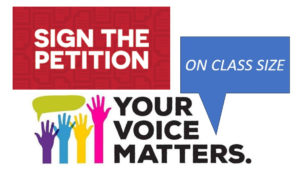
This fact sheet as a pdf is also available here.
Enrollment and retention of high-needs students
-
Each year, charter schools and school districts shall report on their enrollment, suspension, and attrition rates of students overall as well as in the following high needs categories: students with disabilities, English language learners, and students who are eligible applicants for the free and reduced price lunch program.
-
Suspension rates, including out-of-school suspensions and in-school suspensions, should be reported and counted by frequency of suspensions as well as how many individual students are suspended each year.
-
Each year the State Education Department shall report on these rates for each charter schools as compared to the surrounding school districts, in NYC meaning the Community school district.
-
At least every two years, the NYC Comptroller should audit these figures for charter schools in NYC; and the State Comptroller should audit these figures for the charter schools outside the city.
Authorization:
-
Charter authorizers shall take these figures of enrollment, suspension and attrition rates, both overall and in the high needs categories into account for when charter schools apply for renewals or replication. If any charter school does not have rates within 5 percent rates in these categories compared to the surrounding district, their charter shall not be re-authorized or allowed to replicate. In NYC, the rates should be compared to the Community School District in which the charter school is located. Differential rates in any of these categories shall also be grounds for revoking a charter before renewal.
-
All charter school applications, renewals and replications must be approved by the local board of education in the district where the school is to be located before they are submitted to a chartering entity.
-
In NYC, charter applications, renewals and replications must be approved by the Community Education Council of the district in which the charter school is or will be located.
Disciplinary policies and practices
-
Charter schools shall be bound by all the requirements of compulsory education as set forth in part one of article Sixty-five of this chapter including but not limited to §3214 and its regulations. These shall also be incorporated in their proposed charters, including policies on suspensions and expulsions, before being approved, renewed or replicated. Charter schools that refuse to do so should have their authorization revoked.
-
Charter schools shall also provide full-time alternative instruction for the time period that the student is suspended.
-
Charter schools shall also be required to post their disciplinary policies online, and make them available to parents at the beginning of the school year, along with contact information and description of how to file complaints and/or appeal suspensions
Transparency
-
The state comptroller shall have the authority to audit all charter schools in the state, and perform both financial and performance audits.
-
The city comptroller shall have the authority to audit all charter schools in NYC, and perform both financial and performance audits.
-
Open meetings law: The board meetings of charter schools, their networks, and their charter management organizations shall be subject to open meetings law and publicly post in a prominent place on their websites the time and location of meetings at least 72 hours in advance. They shall also retain a mailing list of those who request notification of their meetings, and send this information to them at least 72 hours in advance.
-
All charter schools and their boards shall also keep a public archive of all such announcements. Board meeting minutes shall be posted online and available upon request. Repeated non-compliance with Open Meetings law requirements shall be grounds for the denial of a charter school’s replication, renewal or revocation of its charter.
-
All NYC charter schools shall include in their authorization, replication and renewal requests what specific community school district they intend to locate within, and whether they will request co-located or private space. If approved, they shall locate in that district and not in another.
-
Testing oversight: All charter schools shall have to use same methods as used by the surrounding district to ensure blind scoring of the mandated state exams, including in NYC, cooperative grading sites They shall also be subject to what other methods the state or district may use to ensure integrity of results, including independent monitors and erasure analysis.
-
All charter schools shall post their charters online, including their discipline policies, and make them available by request to parents free of charge within 5 days.
-
When charter schools close, an independent receiver should be appointed to perform financial audits so that taxpayer assets are protected and returned to the district.
Space, facilities and renovation funding
-
No new, existing or expanding charter school shall receive priority for space over a new, existing, or expanding public schools.
-
No charter school shall be provided space in an existing public school if this will currently or over the lifetime of the charter school at full grade levels put the building over 100% utilization.
-
No charter school shall be provided space in an existing public schools if this will preclude providing space now or in the future that could be used for reducing class size to the original C4E levels in the city’s class size reduction plan of no more than 20 students per class in grades K-3, 23 in grades 4-8 and 25 in high schools.
-
If charter schools in NYC or elsewhere are provided funding for private space, either leased directly by the school or provided with a per student subsidy for space, these funds shall be paid for by the state, with no obligation of the district to cover these costs.
-
Matching funds for renovations: Every dollar a co-located charter school spends on renovations or other capital expenses shall require the charter school to provide matching funds to the other schools in the building. These amounts shall be publicly reported each year by Dec. 31 by the charter school to the city and the state, and shall be available upon request by any individual or organization with 30 days of such request.
Parent voice
-
Within three years, all charter school boards shall be composed of half parents, elected directly by the parents at their schools.
-
Each charter school shall outline a clear, simple process for parents to file complaints and appeals on its website, including how they can send them via email, with a schedule of deadlines to ensure timely responses by the charter school, the board, and the authorizer.
-
Each charter school authorizer shall appoint an ombudsperson whose responsibilities will be to support and advise parents who have specific issues and complaints, to investigate and resolve these complaints. These ombudsperson shall also regularly report to their boards, whether it be the Board of Regents and/or SUNY, as to the number of complaints received, the type of complaint, and if and how they were resolved.








